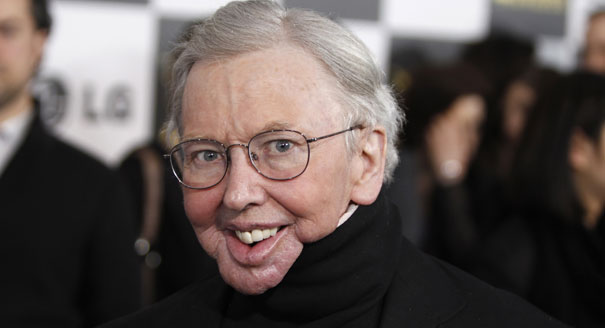I’ll try to keep this short, because Roger tended to write short.
Roger Ebert, who died four years ago today, is still my guiding light as a journalist. I grew up watching him and Gene Siskel on various incarnations of “At the Movies”—it was called “Sneak Previews” originally—but I didn’t read his writing until college at Southern Methodist University, where the bookstore stocked several of his books. I was particularly fond of “Roger Ebert’s Movie Yearbook,” which collected most of the reviews he did as the regular lead critic for The Chicago Sun-Times.
These were the days before widespread internet access, when a student in Dallas couldn’t read a Chicago paper. Once in a while, Roger’s reviews would show up in one of the Dallas papers—I think it was the now-defunct Times-Herald, although I might be remembering wrong—when the staff critics couldn’t or wouldn’t review a new movie that was opening that Friday. But it was a treat to be able to stand there in the aisle at the SMU Bookstore and work my way back through older reviews by Roger, a year at a time. It’s a wonder the manager didn’t fire me, I spent so much time in that film aisle, mainly reading Roger.
When I started writing for the SMU Daily Campus, I borrowed a lot from Roger, Pauline Kael, John Simon and James Agee, the four critics I was reading religiously at the bookstore and the library. Roger predominated, though, because he was the most accessible of the four, with a knack for explaining complicated concepts in plain language, and giving you little film history lessons without you ever feeling that you were sitting in class wondering if this was going to be on the test.
I hear Roger’s voice in my head every time I write. I mean his actual, physical voice, which he lost to cancer, but also also his writer’s voice, which was so clearly delineated that you could hear him reading the words to you even when Roger himself couldn’t physically speak anymore.
“What would Roger do?” is a tricky question to ask. I ask it all the time. As I’ve said on many occasions, everybody who loved Roger’s writing has a different, fantasy version of Roger in their minds. That’s why you can read the comments underneath reviews on this site and see a reader insisting that if Roger were alive he would have hated the movie that this writer liked, followed immediately by a different reader insisting that Roger would have loved the film as well, so kudos for writing in the spirit of Roger.
I think what Roger would do, and what Roger probably did do, was plow through a draft as fast as he could, to preserve spontaneity, then go back and improve the sentences and paragraphs, and cut things that didn’t seem necessary—or that weren’t entertaining enough to justify keeping them around even though they weren’t necessary.
The sentence I hear in my head most often, in Roger’s voice, is, “Do you really need to say that?” The answer is always yes, no, or “No, but it’s funny.” The “yes” stuff I keep. The “no” stuff I cut. The funny stuff depends.
This sounds like a pretty basic method for writing and rewriting, but it’s easy to tell from reading new criticism who’s going through the whole process and who’s only doing step one.
Roger also made sure to give you a sense that the review was written by a person, somebody you knew. A friend sitting across from you at a coffee shop or in your kitchen, or talking to you on the phone.
That’s important. It might be more important in some ways than an elegantly wrought sentence. The most beautiful writing in the world is dull if you don’t feel that there’s an idiosyncratic, fascinating, complete person behind the words, somebody who’s speaking from the heart and not faking it. Somebody like Roger.
Also, Roger knew when to quit.












